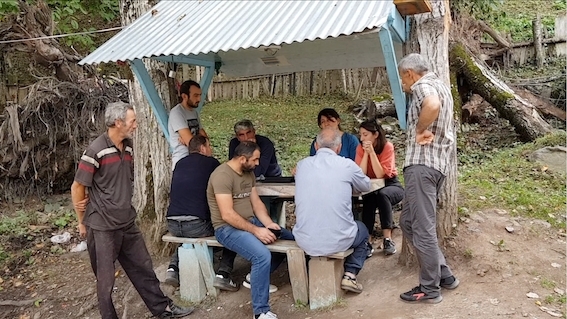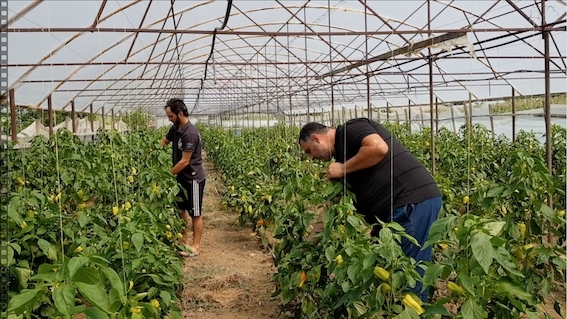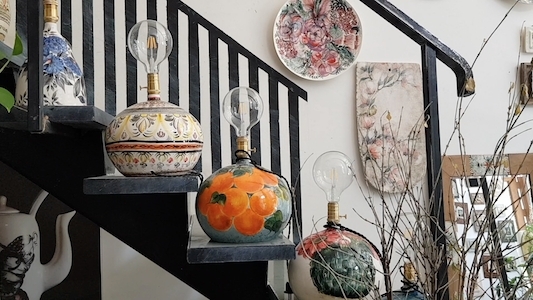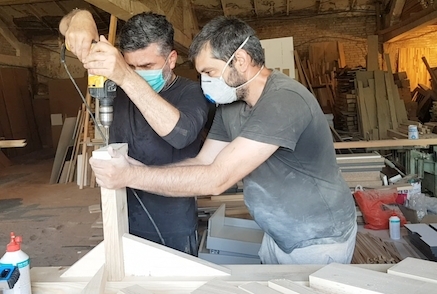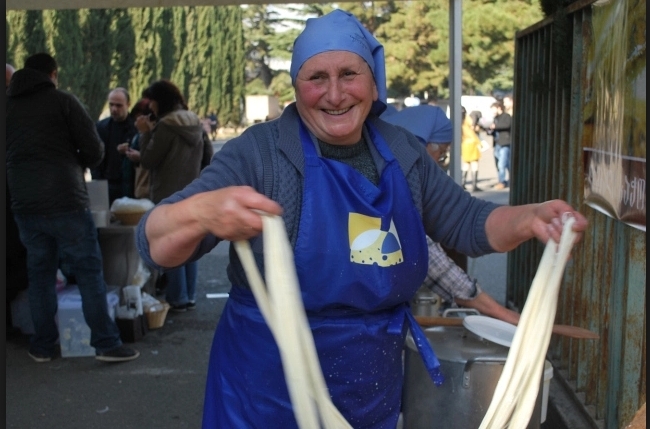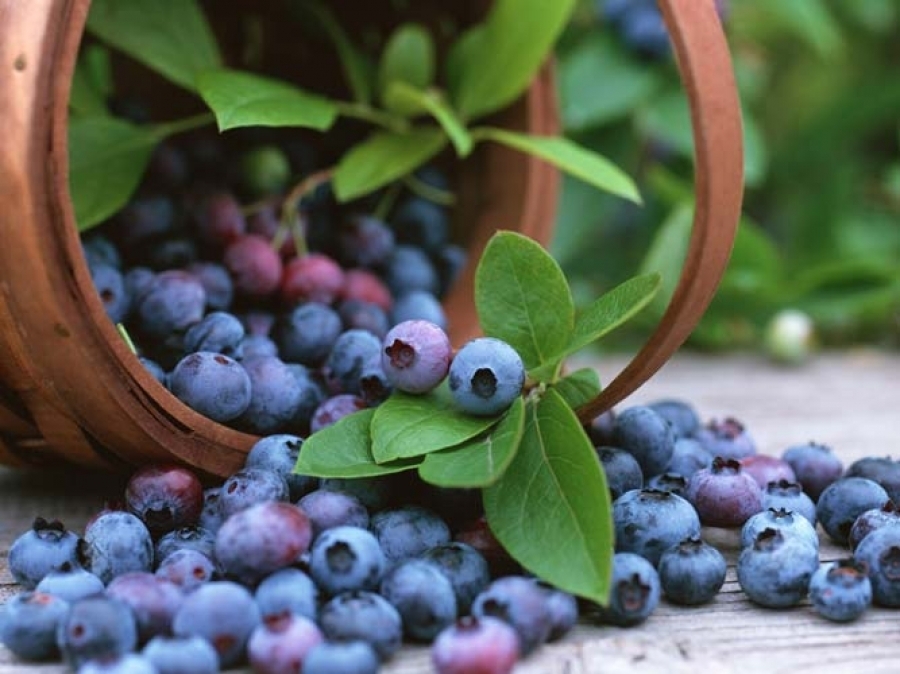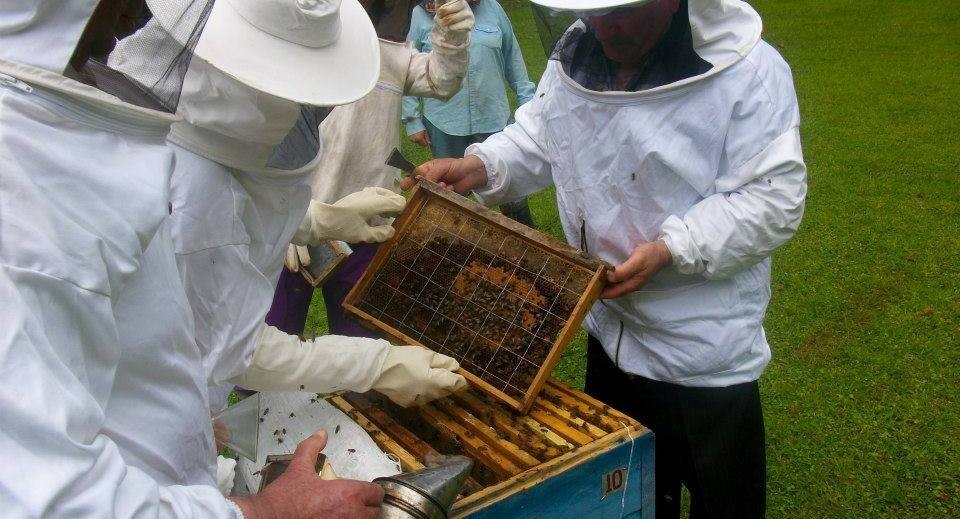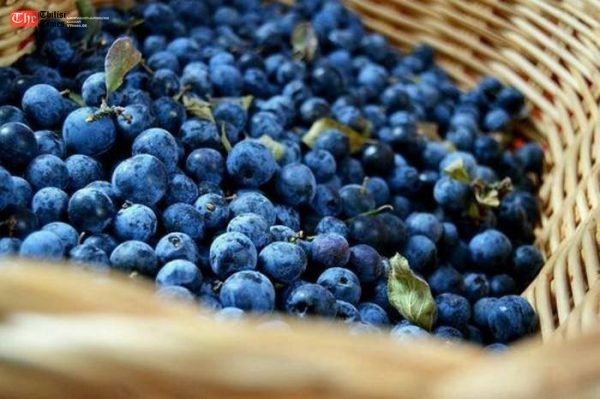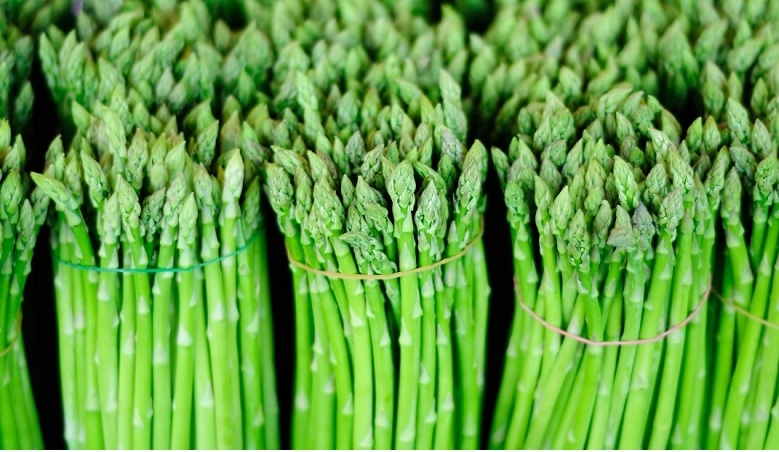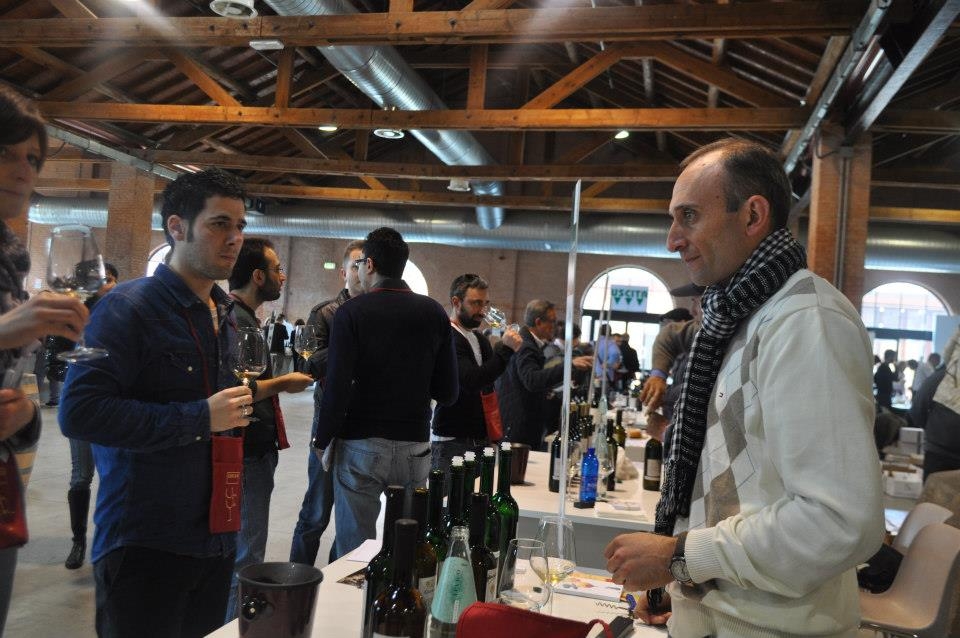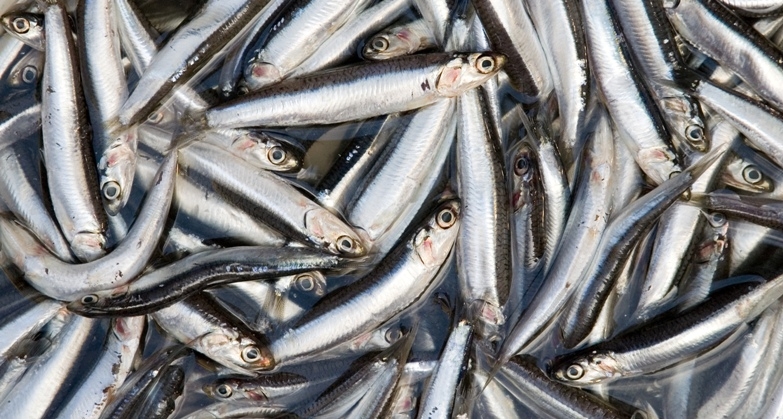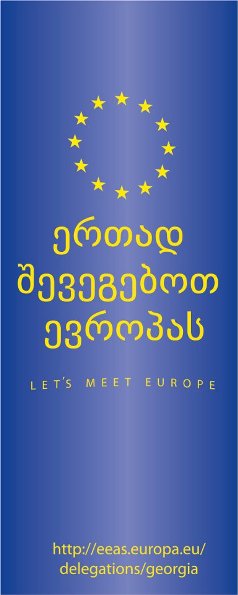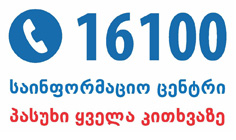Medlar Pomes, Almonds, Pears, and Walnuts in Greater Demand in EU than Apples
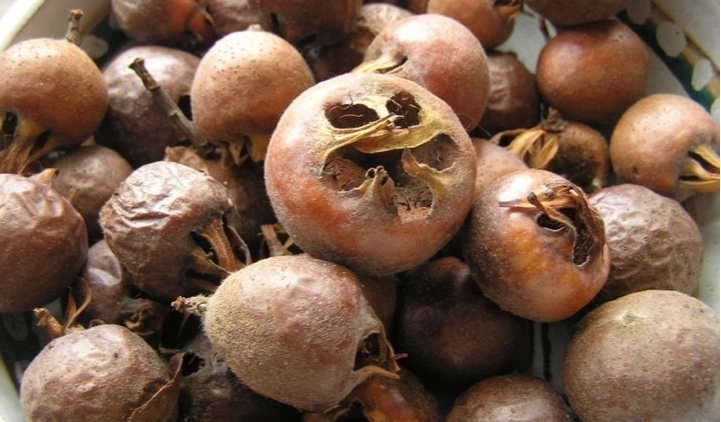
Paata Mogelashvili owns a 20 hectare orchard in the village of Variani, in the Gori District. He has been tending the orchard together with his brothers for several years.Recently, the orchard was replenished when the Sinap and Champion apple cultivars were replaced with the Granny Smith, Jonagold, and Golden Delicious varieties. At least 30-40 tons of apples are harvested per hectare, and there have been years when 80 tons were collected. The owners spare no effort or care, yet so far, the orchard has failed to become a stable profitable business. Most of the last year’s apples (roughly eighty-percent of the crop), has to be stored in refrigerators, and have yet to be sold.
“We sell first-grade apples for 0.50-0.60 GEL per kilo, yet they still do not sell. We hardly ever sell all our crops. In May, when fresh fruits start to blossom, we are often forced to sell apples to juice processing plants for 0.08-0.10 GEL per kilo,” Paata explains.
Farmers in Georgia are plagued across the board by crop failure and overharvesting. “There are no buyers. We cannot sell apples within the internal market, nor can we export them to neighboring countries. Armenia exports its own fruits, and Azerbaijan customs charge an additional 0.50 GEL per kilo, which increases the cost of our apples, and makes them incompatible. Georgian apples no longer sell on the Russian market either. We cannot compete with European products,” Paata Mogelashvili told www.eugeorgia.info.
According to the National Statistics Office of Georgia, over 440,000 tons of fruits and grapes were harvested in Georgia in 2013, with 97.9 percent of the crops collected by small family farms. In terms of the amount of crops harvested in Georgia in 2013, grapes, which top the list, are followed by citruses (110,000 tons), apples (68,000 tons), hazelnuts (39,000 tons), and peaches (23,700 tons).
Peaches are grown mainly in the Kakhetian districts of Gurjaani and Telavi, covering a total of 4,721 hectares.
“We had a vineyard, but could not sell the grapes. President Saakashvili visited us and told us to cut down the vineyard and plant peaches because they are profitable. We received a compensation, uprooted the vineyard, and planted some peaches. We worked hard to grow our crops, but now we are having a hard time selling them. Two years ago, fruits were rotting on our trees, because the selling price would not even cover the harvesting expenses,” said Natela Chokiashvili, a resident of the Chumlaki village in the Gurjaani District.
In 2012-2013, the wholesale price of nectarines in Kakheti was 0.05-0.10 GEL per kilo, while the price of peaches dropped to 0.40 GEL. Along with overharvesting, the decrease in the amount of exports to neighboring countries also contributed to the price decrease. Because the Azerbaijanis set the peach tariff at 0.80 GEL per kilo in 2012, and 1.12 GEL per kilo in 2013, the number of Azerbaijani exporters diminished drastically. Last year, farmers sold peaches for the good price of 1.00-1.15 GEL per kilo. Nonetheless, they have serious concerns about storing the crops this year: “If we fail to land our products on the Russian market, our crops will once again remain unsold,” Natela Kochiashvili says.
Established in 2013, the juice processing plant in the village of Chumlaki in the Gurjaani District, is owned by the Georgian Fruit Company. The company received a $600,000 USD loan from the Affordable Agricultural Credit Project, purchased Italian fruit sorting equipment, and arranged a refrigeration system with a capacity of 400 tons. Fruits are purchased from famers. After being sorted, the product is exported to Russia and Ukraine. The company can process 5,000 tons of fruits. Last year, almost 1,200 tons of apples, nectarines, peaches, citruses, and regular and kakipersimmons were exported to Ukraine and Russia. The company also planned to export Georgian fruits to the European Union, but no products have landed in European countries yet. “Last year, exporting products to Russia and Ukraine proved to be more profitable. As for this season, there is no telling what may happen. If we harvest crops enough to meet demand in Russia, Ukraine, Moldova, Kazakhstan, and, to some extent, the European Union, then we will surely export to European countries as well. Most importantly, our products meet EU standards,” explained the founder of the Georgian Fruit Company Levan Nozadze.
EU requirements
The European Union is very strict in controlling food products, including the safety of fruits. Products sold through large trade networks and at farmers’ markets are tested for pesticides and fertilizers. Before they are available in supermarkets, they must meet GLOBAL GAP requirements. GLOBAL GAP is a farm management standard that must be met by all farmers who pursue fruit, vegetable, and aqua farming. This standard covers the entire process in the production of agricultural and aqua farming goods, including land selection, soil cultivation, and production, to sorting and packing. If a given farm meets GLOBAL GAP requirements, European consumers know that its products are produced properly, while environmental hazards and the use of chemicals is minimized. The National Food Agency informed www.eugeorgia.info that if products intended for sale meet the relevant safety parameters, they can be exported to the EU market, even without meeting GLOBAL GAP standards. To this end however, exporters must ensure that the amount of pesticides and fertilizer leftovers in their products do not exceed the limits set forth by the European Union. Since EU rules and regulations are universal in the union, all EU member states require the testing of pesticides, fertilizer leftovers, as well as heavy metals. They also must provide the relevant lab reports. If necessary, the lab reports must be issued by accredited laboratories. In Georgia, reports on pesticide leftovers and heavy metals are issued by the Multitest laboratory.
In comparison with the European Union, Russia has much fewer fruit product safety requirements. For example, Russia does not mandate the testing of pesticides and fertilizer leftovers, which is why exporters prefer this country. However, no Georgian products have been exported to Russia since the end of 2014. Russia was one of the largest export destinations for Georgian fruits in the previous year.
Vakhtang Bezhitashvili, the founder of the Frutilla export company, discussed the problems on the Russian market. He has been exporting Georgian fruits, such as apples, pears, plums, citruses, and peaches, to CIS countries like Azerbaijan, Belarus, Ukraine, and Kazakhstan. Last year, Russia joined the list of his export destinations. At the end of 2014 however, he was forced to suspend the export of his products to Russia: “Last year, we exported about three-hundred tons of apples from Georgia. Due to the discriminatory customs policy in Azerbaijan, we are unable to export fruits there…we had to stop exporting in December. Along with the depreciation of the hryvnia and ruble, the high price and low-quality of our products are the reasons why we stopped exporting to Ukraine and Russia. Moldova and Poland also provide Russia with apples. Sorted apples cost 0.30 euro per kilo in Poland, while the selling price in Russia is one USD per kilo. Georgian farmers want one GEL per kilo for quality apples. With packaging and transportation costs and taxes, the price comes to over a dollar. Given these factors, Georgian products cannot be competitive. We export fruits to Kazakhstan as well, but we are often unable to provide products with the quality, and in the amounts required by buyers. Rare types of fruits that do not grow in many countries, such as Sinap apples, Patardzala pears, and cornel berries, sell very well.”
According to Bezhitashvili, to ensure the competitiveness of Georgian fruits, the capital cost must be as low as possible:
“The solution is to grow new varieties and usher in new technology. Polish apples are so cheap because over 70 tons are harvested per hectare. Unless Georgian farmers arrange large orchards with new fruit varieties, employ new technology, and arrange special refrigeration systems, Georgian fruits will remain incompatible.”
The Market and its Requirements
Giorgi Mchedlidze is an agronomist, and has spent several years in the US working and studying plant grafting and selection. After returning to Georgia, he arranged a sapling farm in the village of Nikozi, in the Gori District, near the occupation line, growing walnuts, almonds, pears, medlar pomes, cornel, and cherry plum tree saplings. “All these fruits are profitable. However, I intentionally abstain from growing apple-tree saplings. There’s a global overharvesting. The European Union has more than enough apples. Russia was the main market for Georgian apples for years. Unique apple orchards were built in the south of Russia. I have not seen orchards like those anywhere in Georgia. We have enough apple farms in Georgia. If treated properly, they will produce enough fruit to satisfy market demand both at home and abroad. I offer profitable fruit tree saplings that are in greater demand. Instead of apples, it is preferable to grow almonds or walnuts, the price and demand for which grow every year. Turkish farmers have already noticed this trend and arrange walnut and almond tree orchards today.”
According to Mchedlidze, he grows the famous Chandler walnut saplings, and the Nonpariel, Padre, and Butte almond varieties.
Chandler walnuts with their white kernels and thin shells are distinguished by their high productivity, and are in high demand worldwide. The cuttings and buds are exported from the US. One hectare of a Chandler orchard yields 4-5 tons of walnut kernels. The price of a sapling depends on the form of the agreement. Walnuts cost between 15 and 18 GEL, almonds between 6 and 10 GEL, cornel berries between 6 and 7 GEL, pears cost 8 GEL, and cherry plums cost between 4 and 5 GEL.
It has been calculated that arranging a walnut orchard on one hectare of land will cost about 10,000 GEL, which includes monthly consultations throughout the contract period, which is between two and three years. Among others, during the consultations, farmers also learn about the proper treatment of fruit trees. According to Mchedlidze, the advantage of modern varieties is that they bear fruit in only a few years after they have been planted and, in comparison with Soviet-period plants, produce larger crops.
“We will assist farmers in ensuring that the first fruits blossom. The sapling will cover the capital cost in three years, and the fourth year will bring profit.”
Plant the Future
In 2015, the Ministry of Agriculture launched a new project entitled Plant the Future, designed to assist those planning to arrange orchards or sapling farms. The ministry will finance seventy-percent of the sapling price and fifty-percent of the drip irrigation costs for the newly arranged orchards, and, in the case of sapling farming, the Project Management Agency will cover half of all costs. Individual types of saplings to be grown in different regions and the volume of financing for each type have been defined. For example, peach, plum, cherry, persimmon, pomegranate, walnut, and almond orchards will be financed in Kakheti. The financing of each sapling will not exceed 3.5 GEL. What are the criteria for selecting particular types of fruit trees to grow, and does this selection involve marketing calculations? The Project Management Agency www.eugeorgia.info stated that particular perennial fruit trees for individual regions were selected by the Scientific and Research Center of Agriculture, judging mainly by the productivity of the given crops in a particular region.
15 million GEL will be spent in two years on the implementation of the Plant the Future project. The Ministry of Agriculture hopes that the project will result in the arrangement of modern orchards on 1,000-1,200 hectares of land, contributing to the replacement of exported products with local goods on the local market, and enhancing the country’s export potential.
Gela Khanishvili, the founder of Agro 1959 LLC, says that Plant the Future is a step forward in the development of agriculture:
“Supporting the arrangement of new fruit orchards on five hectares of land means that the agrarian sector will advance from peasant-type farming to actual farming, which is commendable.”
Many large farmers plan to engage in this project initiated by the Ministry of Agriculture, including the Georgian Fruit Company. In an interview with www.eugeorgia.info, Levan Nozadze admitted to being unable to buy land for a modern orchard.
“In my experience, we must contribute our products, and that should make up 30-40 percent of exports in order to maintain relations with contractors, and to keep prices steady. We want to arrange new orchards to plant certified Italian and Greek saplings, and to install a drip irrigation system so that everyone may come and see how we grow and tend fruits. This is very important for exporting goods. We plan to purchase up to 150 hectares in Kakheti, and we want the state to sell it to us for a symbolic price. We turned to the Ministry of Economy and the local self-government five years ago, but the process is dragging-on because of bureaucratic red tape.”
Paata Mogelashvili also plans to grow new fruit varieties within the framework of Plant the Future. He believes that quality crops will never be harvested in large quantities, and that Georgian fruits will remain uncompetitive in the European Union and Russia alike unless large orchards are set up in Georgia. According to Mogelashvili, organic food products are most promising in Europe, which is why he has already started arranging a pilot organic farm (one hectare).
Farmers hope that after European requirements are enforced in Georgia, a demand for new fruit varieties will arise on the local market. In turn, abundant quality harvests will ensure the prospects of export to new markets.
Statistics
49 tons of apples were exported to Russia in 2013, and 372 and 119 tons to Kazakhstan and Belarus respectively.
5,500 tons of apples were imported to Georgia in 2013. Traditionally, Turkey was the largest importer. In 2013, however, Turkey, with 625 tons of apples imported to Georgia, took a back seat to Iran from where 4,390 tons of apples were imported.
Manana Vardiashvili

